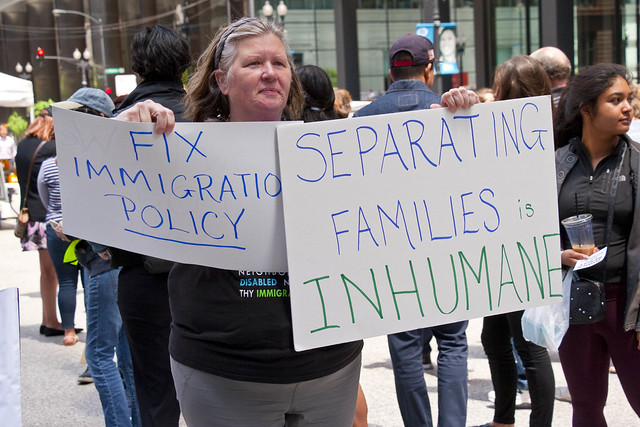Diane’s farewell message
After 52 years at WAMU, Diane Rehm says goodbye.

A woman holds signs at a rally in Chicago on June 5, 2018, to protest President Trump's immigration policies.
Just like in 2016, President Trump is making immigration a key part of his re-election campaign. Starting this weekend, he has directed U.S. Immigration and Customs Enforcement to conduct a mass roundup of families that have received deportation orders.
This means Trump’s Democratic opponent, whoever he or she ends up being, will have to talk about immigration as well. But regardless of Trump’s rhetoric and actions on immigration, we do indeed have a crisis at the border: thousands of Central American families are coming across the southern border each day seeking asylum. Millions of people are living in the U.S. without authorization.
So what should be done? Diane speaks with Angela Kelley of Open Society Foundations to talk about the immigration challenges we’re facing and solutions she hopes Democratic candidates and leaders will offer.
After 52 years at WAMU, Diane Rehm says goodbye.
Diane takes the mic one last time at WAMU. She talks to Susan Page of USA Today about Trump’s first hundred days – and what they say about the next hundred.
Maryland Congressman Jamie Raskin was first elected to the House in 2016, just as Donald Trump ascended to the presidency for the first time. Since then, few Democrats have worked as…
Can the courts act as a check on the Trump administration’s power? CNN chief Supreme Court analyst Joan Biskupic on how the clash over deportations is testing the judiciary.